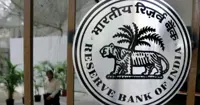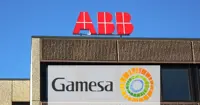Global online advertising to overtake radio advertising in 2008
28 Aug 2008
Carat, Europe's biggest media buyer, has trimmed its growth forecasts for global spending on advertising for this year and the next, after revising its estimates in the United States, Britain, Spain and China.
Carat, part of the £9.3-billion UK-based marketing communications Aegis Group, predicted that online advertising will continue to grow this year - albeit at a slower rate than in 2007 - and will overtake radio as the world's third most popular advertising medium behind TV and newspapers and magazines in 2008.
Earlier in June, Publicis Group firm ZenithOptimedia too had forecast that online ad spending would overtake radio this year.
Carat now expects 4.9 per cent growth instead of 6 per cent for 2008 and 4.8 per cent for 2009, down from a previous estimate of 4.9 per cent.
This prediction comes after ZenithOptimedia, part of rival Publicis Group, made a similar forecast in June that spending on online advertising would overtake radio in 2008.
The new estimates from Carat will come as cold comfort to ITV, as Britain's largest commercial broadcaster struggles to turn its business around in the face of an advertising downturn, and newspaper groups who are already struggling with the switch in spending from print to online.
China's growth has been revised downwards by a percentage point for this year, given the impact of the May earthquake and uncertainty about post-Olympics ad spending.
The UK's overall growth forecast has been cut from 4.3 per cent to 2.5 per cent, with a downward revision of 1.8 per cent.
Elsewhere, the majority of the developed economies are predicted to contribute less than 5 per cent growth, while emerging economies in Central and Eastern Europe, Central Asia and Latin America continue to surge ahead and provide reason for optimism in the face of the downturn elsewhere.
In the US, growth is predicted to slow to 2.1 per cent from an earlier forecast of 3.8 per cent, with newspapers, magazines and radio all experiencing declines in 2008. US newspapers have been particularly hard hit with thousands losing their jobs as papers cut staff.
However, TV and the internet are expected to show gains, boosted by spending from the US presidential elections and the Beijing Olympics, which proved a boon for NBC.
In China, 2009 is forecast to see a more significant decline in growth, with forecasts down from 13.2 per cent to 10.9 per cent in what will become the world's third largest advertising market.
Despite this, Carat said growth in China is still well ahead of predictions for the developed world.
Overall, Carat yesterday dropped its estimate for global advertising spending growth to 4.9 per cent this year, from its original forecast of 6 per cent, and 4.8 per cent in 2009, slightly down on its initial estimate of 4.9 per cent. Last year global advertising spending increased by 5.1 per cent.
Globally all areas of advertising except newspapers are expected to see some increase in advertising spending this year. But rapid growth in online advertising - predicted to be up 23.7 per cent compared with 28.8 per cent last year - will mean its total share of all advertising spending will increase to 8.6 per cent this year, overtaking radio at 7.4 per cent.


.webp)




























